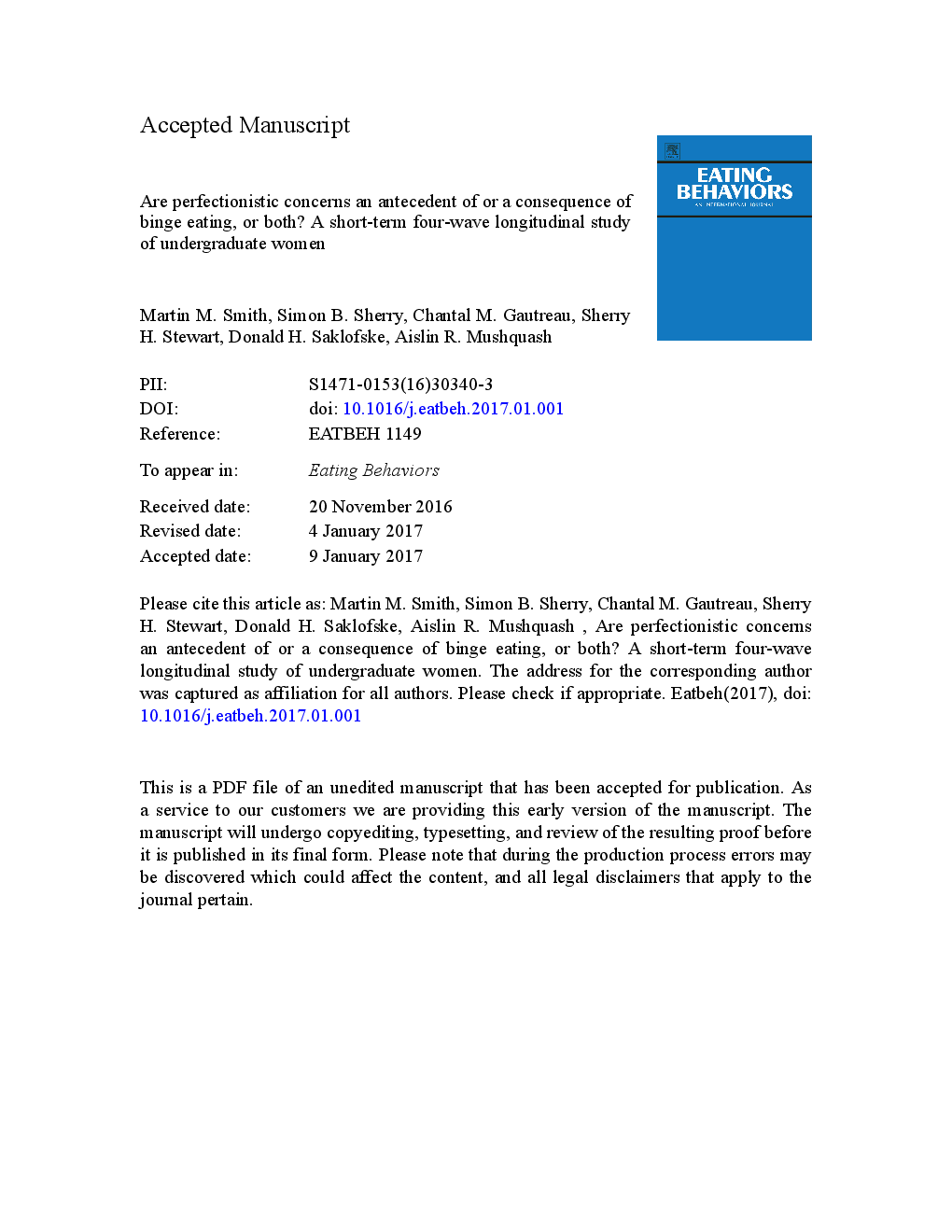ترجمه فارسی عنوان مقاله
آیا نگرانی های کمال گرایی پیش از یا پس از خوردن غذا یا هر دو؟ یک مطالعه طولی مدت کوتاه مدت چهارساله زنان مقطع کارشناسی
عنوان انگلیسی
Are perfectionistic concerns an antecedent of or a consequence of binge eating, or both? A short-term four-wave longitudinal study of undergraduate women
| کد مقاله | سال انتشار | تعداد صفحات مقاله انگلیسی |
|---|---|---|
| 120738 | 2017 | 18 صفحه PDF |
منبع

Publisher : Elsevier - Science Direct (الزویر - ساینس دایرکت)
Journal : Eating Behaviors, Volume 26, August 2017, Pages 23-26
ترجمه کلمات کلیدی
کمال گرایی، خوردن غذا، طولی تجزیه و تحلیل متقابل،
کلمات کلیدی انگلیسی
Perfectionism; Binge eating; Longitudinal; Cross-lagged analysis;

